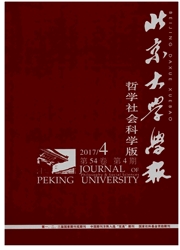

 中文摘要:
中文摘要:
汉语界面单位的递归性函数法则显示,“字”是汉语最小离散的语法单位,其存在导致了汉语词位和词位变体切分的永恒矛盾对立。汉英语在大脑神经认知网络中处理方式的异同揭示汉语词身份的识别存在依赖声调、语境不断进行语音一语义的投射过程。汉语的词类可归属于句法或语篇语用凸显型词类,但是词的表述功能、语义类和所处的句法结构不能完全帮助识别词的语类,从而带来汉语词类的内在不确定性。
 英文摘要:
英文摘要:
The recursive mathematical law underlying the interface of linguistic units in Chinese shows that zi (character) is the minimal discrete grammatical unit in Chinese, whose existence leads to the eternal contradiction between lexeme and word form. The similarities and differences in the interaction of neural networks between Chinese and English indicate that word identification in Chinese is more dependent on tone and context for further pho- netic - semantic mapping. Grammatical categories in Chinese are subsumed under syntac tic or discursive pragmatic -prominent typology. The expressive functions, semantic classes and syntactic structures are not entirely helpful in identifying grammatical categories of lexical items in Chinese, bringing about their inherent uncertainty.
 同期刊论文项目
同期刊论文项目
 同项目期刊论文
同项目期刊论文
 期刊信息
期刊信息
